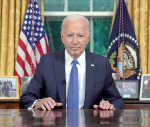You are here
Celebrating Mediterranean diversity and unity in the face of shared challenges
Nov 27,2021 - Last updated at Nov 27,2021
“Mosaic”, “Future”, “Light”, “Civilisation”, “Solidarity”, “Serenity”… These were some of the words Mediterranean artists, policymakers, scientists or businesswomen chose to describe our common sea, in the framework of our first Day of the Mediterranean campaign. Over the past few months, we’ve been asking citizens from the region to describe the Mediterranean in one word. I was happily surprised that the answers were all so positive and heart-warming, in contrast with the echoes of the headlines we are used to read.
These words resonate with me and remind me of all that the Mediterranean region has to offer. Slowly walking out from the COVID-19 pandemic, and with increasingly pressing challenges, Mediterranean enthusiasts that fight every day for a future that we can, and will, create for the next generations to come, can sometimes feel tired of the gloomy reactions towards our shared region.
That feeling is partly why I’ve been such a vocal supporter of creating an international day that celebrates the Mediterranean: To shine a light not only on the historical and cultural wonders of the region, but also on the less tangible and visible — the many years of cooperation and dialogue that have blossomed across the region. We must celebrate how the peoples of the Mediterranean have always showed great resilience, and how they joined hands throughout the years to make our region a more peaceful, stable and prosperous. We must celebrate our successes and pave together the way for even stronger solidarity in the years to come. November 28, 2021 marks the first annual Day of the Mediterranean, recognising Mediterranean cultures, dialogue and richness. Commemorating what makes us one of the top destinations in the world.
Naturally, the Euro-Mediterranean region’s diversity means also that there is no homogeneity, whether political, economic or social. Let’s not forget it is at the crossroads of three continents. But when it comes to global issues such as climate change or youth empowerment, differences are put aside to work together.
For instance, we have witnessed a historical momentum this last October, as our 42 member states, with tremendous differences in terms of economic development and priorities, adopted common and ambitious political commitments to protect and preserve the unique environmental biodiversity of the Mediterranean in the face of climate change. The Mediterranean region is warming up 20 per cent faster than the rest of the world. Without immediate policy change, the Mediterranean region will experience devastating effects to its ecosystem and way of life by 2040. That is why the recent agreement has been one of the clearest examples, during my time as secretary general, of the importance of such a multilateral platform, like the Union for the Mediterranean. Common coordinated action will protect our citizens on the frontlines of climate change today, and safeguard tomorrow for everyone.
Throughout this pandemic, we’ve also seen our member states come together, bonded by their common determination to overcome COVID-19 and build an inclusive and sustainable recovery. The Euro-Mediterranean region remains one of the least economically integrated regions in the world. If we look at the levels of trade integration, 70 per cent of all cargo traffic in the Mediterranean is between European ports, with only 15 per cent between Europe and North Africa, and 5 per cent between MENA countries. But there is more to this untapped potential in the region: For example, concentrated solar power plants in the region could generate 100 times the electricity consumption of MENA and Europe combined. Green energy could power the future and be a shared investment — a win for both regional integration and climate action. The recently launched UfM Progress Report on Regional Integration sheds light on this untapped potential and more, and will be at the heart of the discussions of tomorrow’s UfM Sixth Regional Forum.
Regional integration and the fight against climate change are complex and intersectional. As we work to recover from the pandemic, we must leverage the opportunity to create more inclusive societies that ensure young people and women can reach their full potential, contributing to the region’s future development. This why the first celebration of the Day of the Mediterranean must shine a light on the socio-economic and environmental challenges hindering stability and prosperity in the region.
Then, with all eyes on us, we can build the momentum needed to further unite the region in making the Mediterranean a pioneer of inclusive regional policies. Let our shared belief in our dynamic, creative and vibrant Euro-Mediterranean region be the compass for a brighter future.
The writer is secretary general of the Union for the Mediterranean













